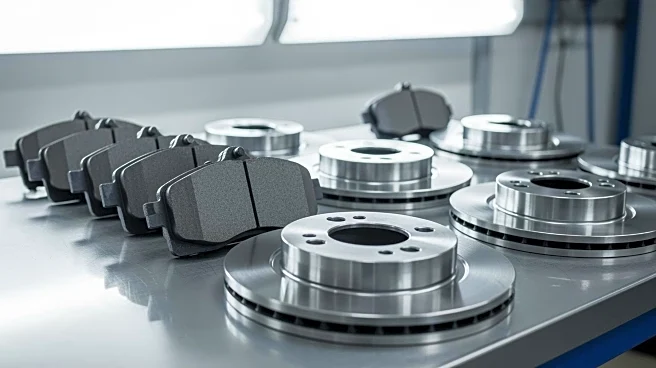What's Happening?
The Commercial Vehicle Safety Alliance (CVSA) has released findings from its May 2025 International Roadcheck, revealing that brake-related issues continue to be the leading cause of out-of-service (OOS) violations. Out of over 56,000 inspections conducted
across North America, 24.4% of OOS violations were due to brake systems, with another 20% attributed to defective brakes. In the U.S., the figures were slightly lower, with 24% for brake systems and 15% for defective brakes. These statistics reflect a persistent trend over the past eight years, with brake system violations consistently topping the list despite industry efforts to address the issue.
Why It's Important?
The high incidence of brake-related violations underscores the critical need for improved maintenance and compliance within the commercial vehicle industry. Safe and efficient braking systems are essential for preventing accidents and ensuring the reliability of fleet operations. In the current economic climate, where efficiency is paramount, addressing these violations is crucial for minimizing downtime and maximizing productivity. The ongoing prevalence of brake issues highlights the need for industry-wide initiatives to enhance safety standards and reduce the risk of costly violations.
What's Next?
Fleet operators are likely to face increased pressure to implement more rigorous maintenance protocols and invest in advanced braking technologies to reduce OOS violations. Regulatory bodies may consider stricter enforcement measures or incentives to encourage compliance. The industry could also see a push towards adopting alternative fuels and technologies that offer improved safety and efficiency. Collaboration between manufacturers, regulators, and fleet operators will be key to developing solutions that address the root causes of brake-related issues.
Beyond the Headlines
The persistent brake violations raise questions about the adequacy of current inspection and maintenance practices within the industry. There may be a need for a cultural shift towards prioritizing safety and compliance, as well as exploring innovative approaches to fleet management. The findings also highlight the potential for technological advancements, such as predictive maintenance systems, to play a role in preventing violations and enhancing overall fleet safety.
















